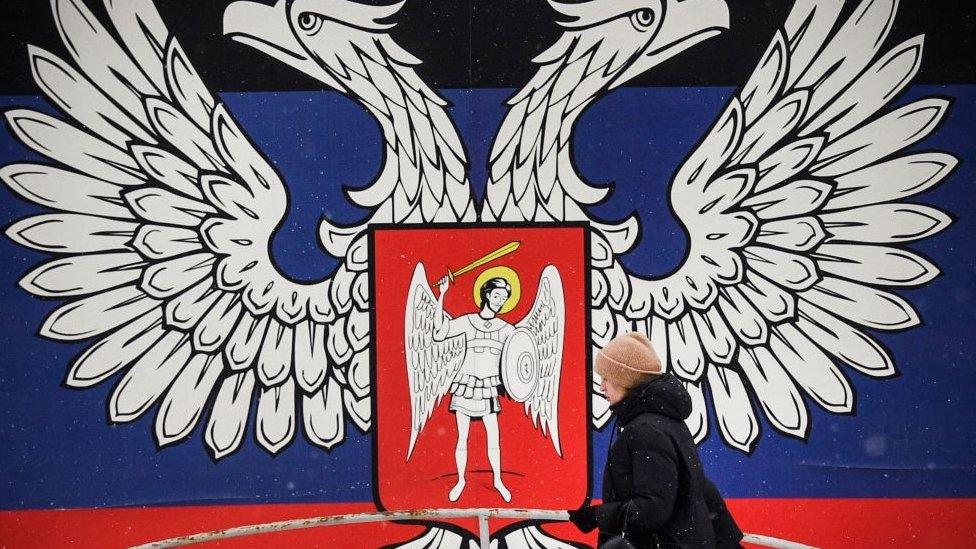Ukraine: Fear for Donetsk after eight-year war escalates
- Published
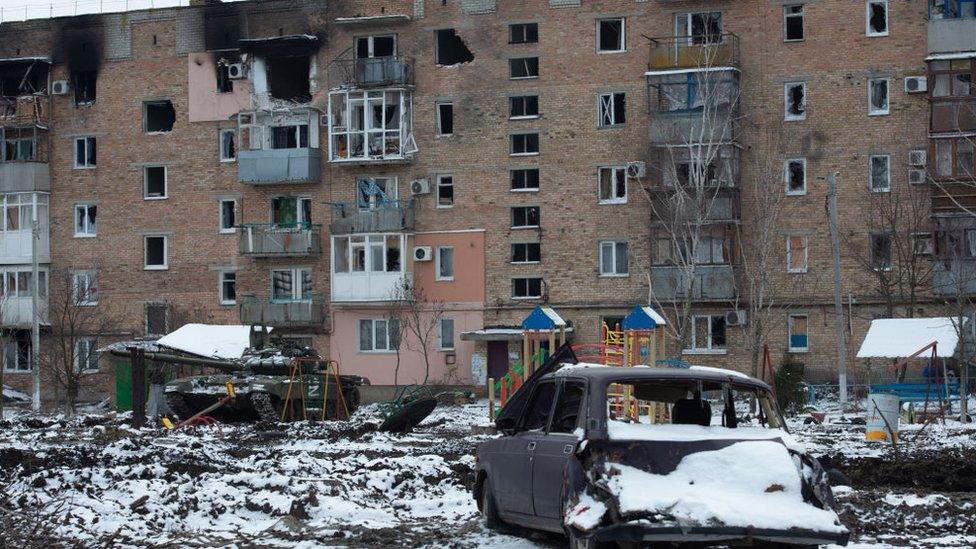
The Russian-backed separatists area of Donetsk was founded by a Welsh industrialist in 1869
"The house where my family live is in a dangerous place.... we don't sleep, we are looking on the internet to see which house has been bombed, who has died."
The invasion of Ukraine is nothing new for the people of rebel-held Donetsk, who have been at war for the past eight years and seen Russian's invasion of Ukraine escalate the conflict there.
Many following the conflict may not be aware of Donetsk's remarkable history - it was founded by a Welshman.
In 1869, on the invitation of the then-Russian tsar, John Hughes from Merthyr Tydfil took 100 Welsh engineers to eastern Ukraine and developed metallurgical plants and coal mining - industries that still form the backbone of modern day Donetsk.
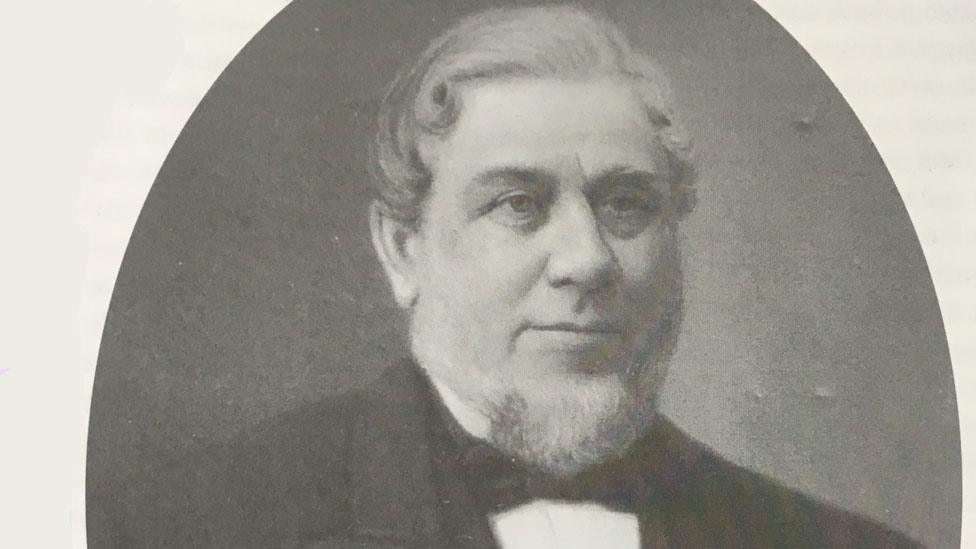
John Hughes was the son of a Merthyr Tydfil iron engineer
Hughesovka began as a relatively small settlement but over time became more substantial with people from all over what was then the Russian Empire coming to work there.
Tax reforms saw foreign entrepreneurs from around the world set up industry in the wider region of Donbas in the 19th Century.
But the Russian Revolution in 1917 saw foreign capitalists thrown out of the country and industries nationalised.
Hughesovka was renamed Stalino for almost half a decade but after Joseph Stalin's death, external it was renamed Donetsk.
Before the Donbas war broke out in 2014, Donetsk was a "really lively city with excellent infrastructure" and football clubs playing in European leagues, said Igor Potapov, who also grew up there.
It remained an industrial city but after World War Two the Soviet Union moved research centres to the city, making it a centre of science, research and learning.
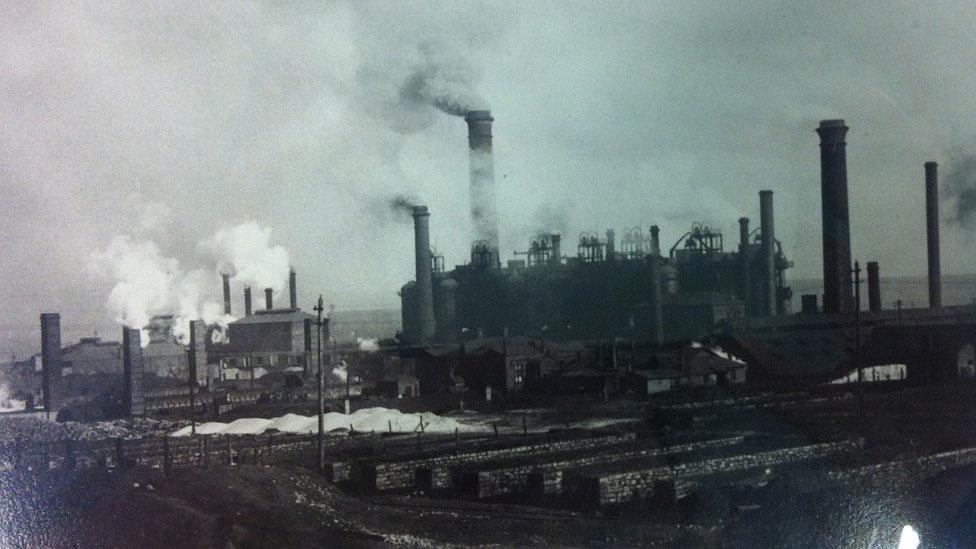
Hughesovka was established around metalworking - this is a photo from the 1890s
All that changed with the Donbas war, which has claimed the lives of more than 3,000 civilians, external, according to the United Nations.
Those from Donetsk say their war-town city is now "even more dangerous" and they are desperately concerned for family who remain there.
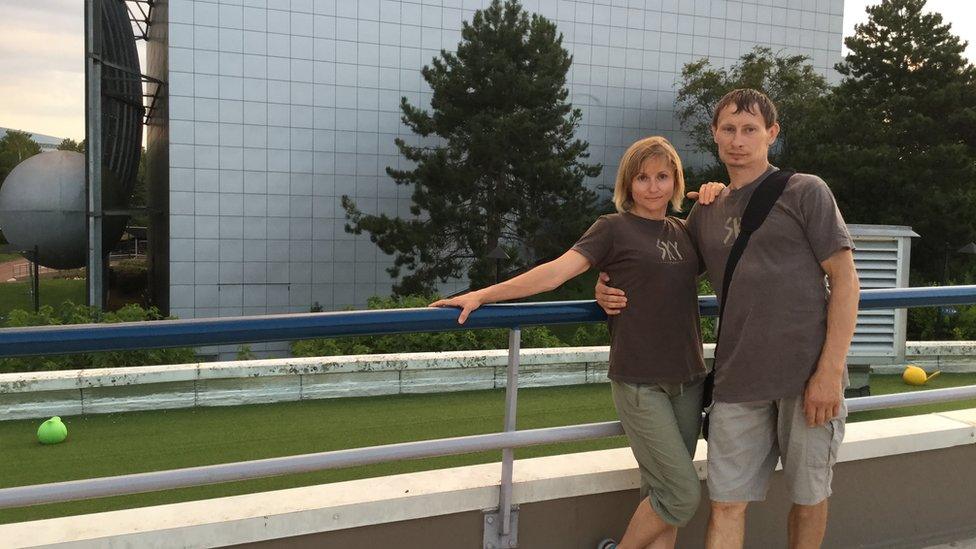
Mykhaylo Pavlov and Nataliya Piontek both fear for their parents in Donetsk
'A dangerous place'
Acrobats Mykhaylo Pavlov and Nataliya Piontek are desperately concerned for family in Donetsk.
The married couple call their parents daily from their home in Lyon, France, where they work in a circus.
Becoming tearful when referring to the recent missile strike on the centre of Donetsk, Nataliya, 43, said: "Now it's very, very bad, very difficult.
"The house where my family live is in a dangerous place," she said, explaining they live near the airport.
The couple came to the UK in 2000 to take part in a show at Blackpool Pleasure Beach before moving to Germany and the USA before settling in Lyon eight years ago.
Many in Donetsk fled their homes ahead of the conflict, often rebuilding their lives elsewhere in Ukraine and now face being displaced once more.
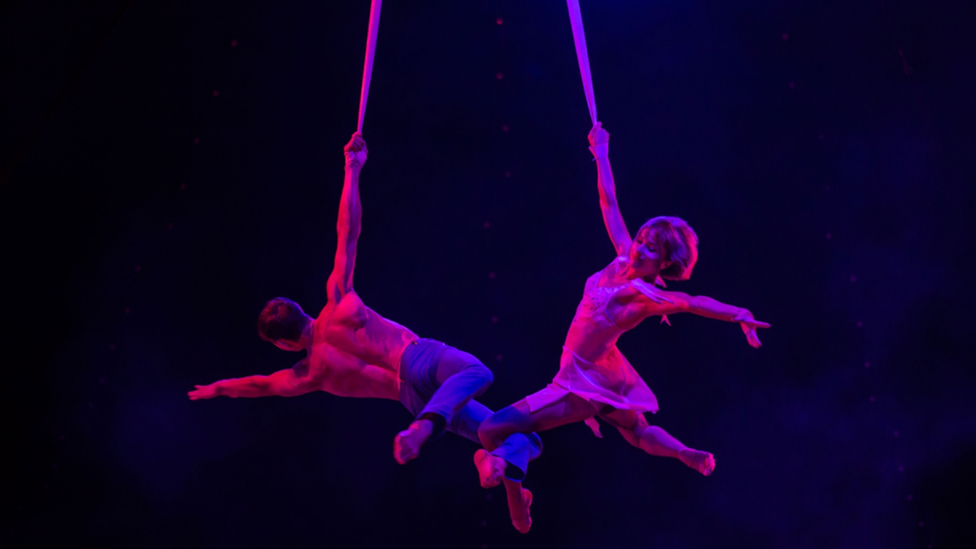
Gymnasts Mykhaylo Pavlov and Nataliya Piontek are circus performers in Lyon
Most of Nataliya's family left Donetsk but her parents returned just six weeks later to look after her elderly grandmother.
"It's very dangerous all the time, but since 24 February it is even more dangerous," she said
Last month, Russia's president Vladimir Putin recognised Donetsk and neighbouring Luhansk in eastern Ukraine as independent states and ordered Russian troops there, tearing up a peace deal.
She said her daily conversations with her mother, who was also grieving the recent loss of Nataliya's father, had become "very emotional".
"We don't sleep," said Nataliya.
"We wake up and straight away are looking on the internet to see what's happened, which house has been bombed, who has died."
Mykhaylo agreed: "It's very difficult to sleep - I wake up in the night, I take my phone and look at at news to see what's happened, it's difficult."
Mykhaylo's mother, 79, father, 80, as well as his brother and his brother's family also remain in Donetsk.
"Every day we are sad," he said.

He said his brother was initially recruited to the Russian army but returned after a week because there were not enough workers to keep the local factory going.
Many other men he knows have also joined the army, he said.
"It's very sad because they are not really fighters. Some guys are hiding, they don't want to go to war."
He said the area where his parents live was safer than where Nataliya's family live but they sometimes have to go without water or electricity.
He said his mother was unable to access her pension in Donetsk, so every six months she has to make a 28-hour round trip by bus through Russia to Mariupol to collect it.
Speaking of both his and Nataliya's parents, Mykhaylo, 46, said: "They all support Russia - they mostly look at Russian TV and what the TV says they just repeat."
Nataliya said both their families had initially believed in Putin's special operation and did not believe a war was under way but were now "starting to believe".
"This war has destroyed life for everyone," she said.

War in Ukraine: More coverage
RUSSIA MOTHERS: 'How do I get my soldier son back?'
IN DEPTH: Full coverage of the conflict

She said the violence had calmed since 2016 but "this period is like starting again - what it was eight years ago has come back".
"We are more worried than before," she said.
"Before it was just our city and you thought 'maybe our parents can leave and have a normal life' but now it's not possible to leave for anywhere in Ukraine."
Asked when they thought they might see their families again, Nataliya said: "That's very difficult, we lose hope."
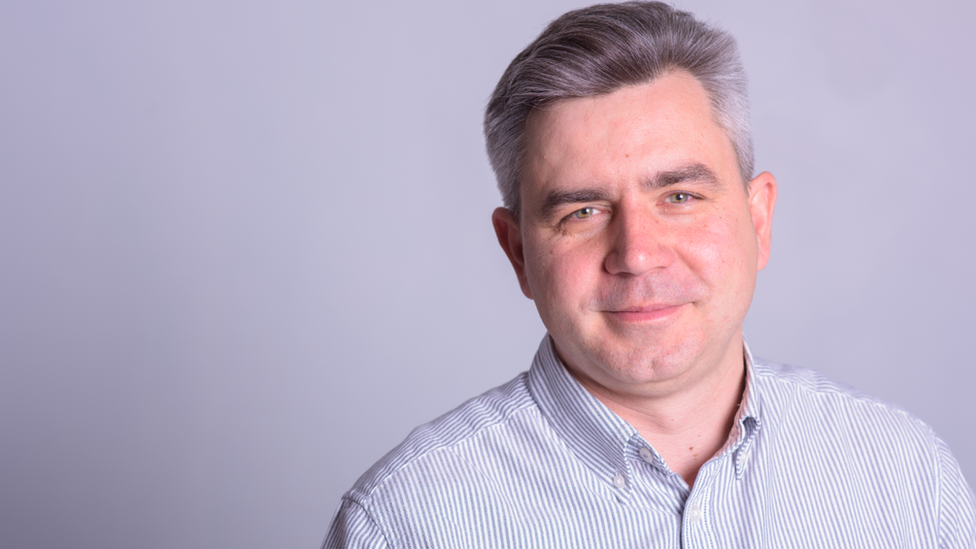
Igor Potapov brought his parents from Donetsk to join him in Liverpool in 2012
'We are really depressed'
Igor Potapov, who grew up in Donetsk, is feeling consumed by events in Ukraine.
"It is difficult, I am distressed," he said.
Igor left Donetsk after completing his PhD in 2000 to take up his job as a computer science professor at the University of Liverpool.
Foreseeing the Donbas war, he brought his parents over to join him in 2012. His father died in 2015.
"I think that we are really depressed," he said of himself and his mother.
"Before the war [started on 24 February], the last two days I was waking up at three or four o'clock at night, checking my phone to see whether the war had started or not.
"I was mentally ready that it might start, but no-one was expecting that it would start at this level of events... no-one was expecting it would be so massive."
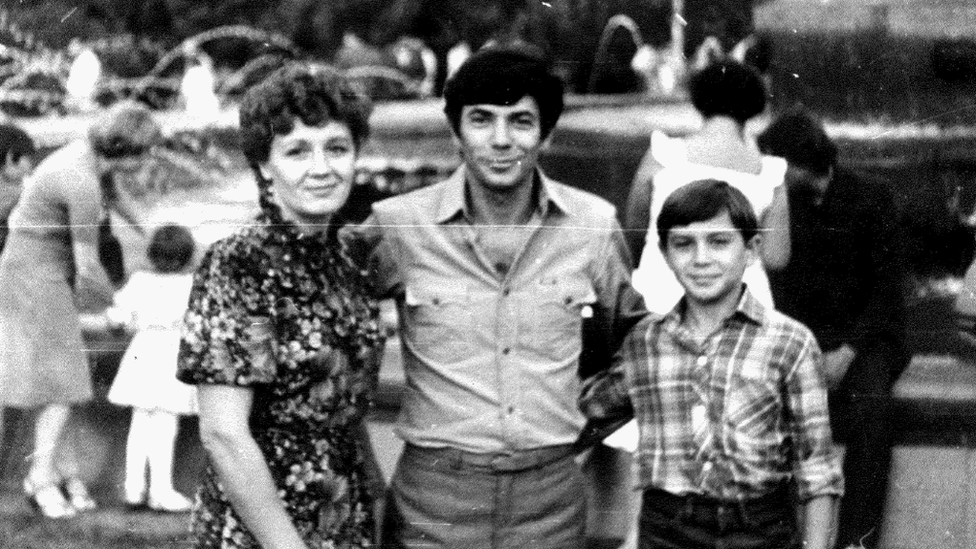
Igor and his parents, circa 1985
He last visited Donetsk in 2012, where he fondly remembered seeing the city's "brilliant new airport".
Donetsk Sergei Prokofiev International Airport was built ahead of Euro 2012, which was co-hosted by Ukraine and Poland at a cost of about £537m .
In 2013, it handled more than 1,000,000 passengers but when the war broke out the following year it was destroyed by months of heavy fighting, something Igor said was a "really devastating experience".
Recalling events in 2014, he said: "Some people left everything they had or left with two suitcases thinking they'd be back in a month or two, but they never came back and I think it was really difficult for some people."
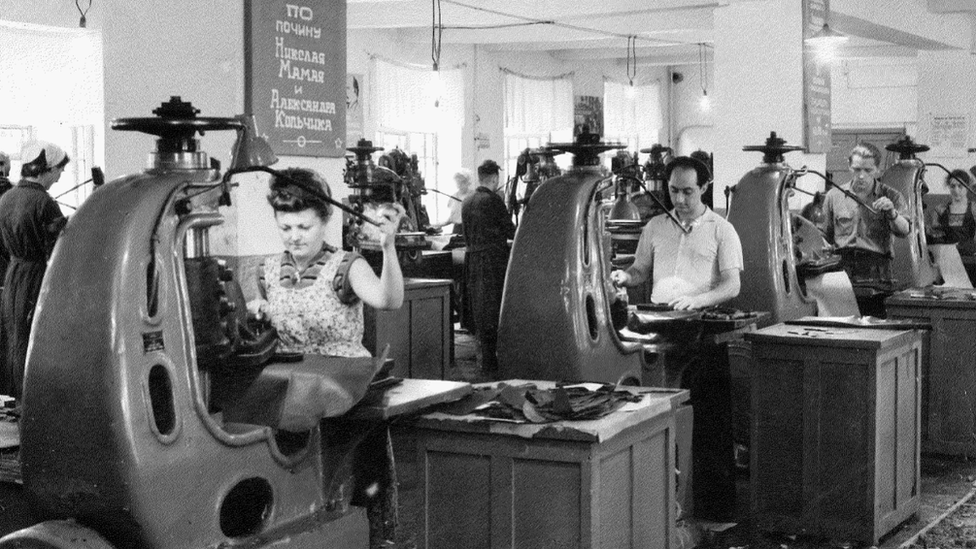
Igor's grandmother (front) working a Donetsk factory in the 1950s
He said most headed for Kyiv but some were forced to return home after being unable to find work or accommodation.
He said it had been "difficult to see the devastating effects of the war" from afar.
"You see that something is wrong, but you cannot change it, and I think that was difficult to accept ."
He has made contact with other academics at universities around Europe to try and arrange hosting Ukrainian students so they can continue their studies.
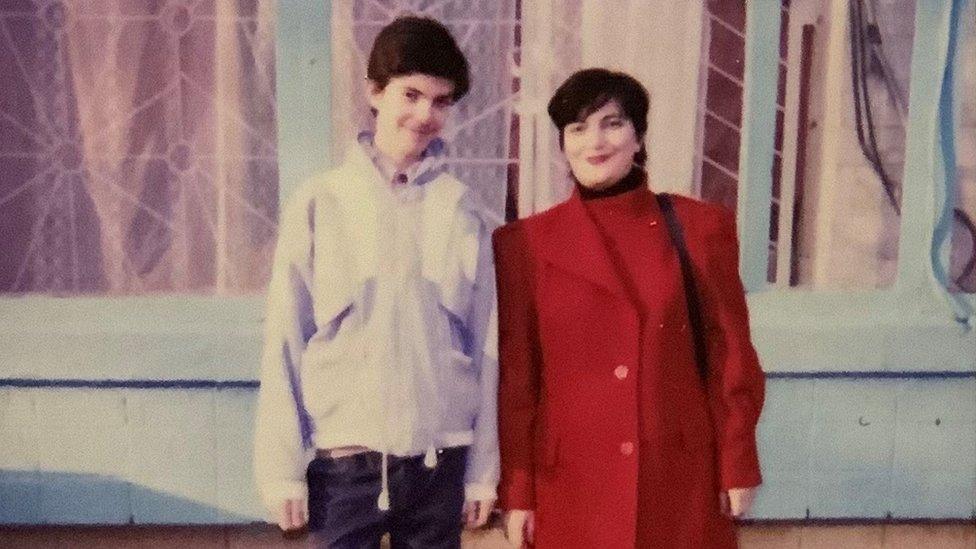
Viktor, pictured his his his mother in Donetsk in 2000, is fearful for his home city
'I feel very bad every day'
Viktor Zasypkin, 36, who was brought up in Donetsk, left in 2014 and now lives in Krakow, Poland, with his wife and daughter and works as a graphic designer.
"I hope that my mum and people in Donetsk will be safe," he said.
"I hope there will not be something like Mariupol in Donetsk," he added, referring to last week's Russian bombing that destroyed a children's and maternity hospital.
Viktor was living in the centre of Donetsk with his grandmother when the war broke out in 2014.
He had an opportunity to go to Kyiv for a few months with an exhibition he was working on but did not return until 2016. His parents stayed behind to take care of his grandmother.
In 2017 he and his wife left Kyiv for Krakow but his mother remains in Donetsk.
"I feel very bad every day," he said.
"I try to keep myself busy and not just read the news... [but] you cannot avoid it at all because you hear it from everyone around you... it's pretty hard."
He said there were sometimes issue with his mother's water supply but, for now, she has access to food and was able to keep warm.
"There was an opportunity for her to leave Donetsk before February... but my mother didn't want to," he said.
"I can understand why she doesn't want to leave home but we were trying to push her."
His mother trusts what she is told by Russia and the Donetsk People's Republics (DPR), he said, which can make it "hard to speak with her on this theme", he said.
His mother has told him men back home are "sitting at home trying to not get militarised".
"A few guys I know are at home and not going outside," he said.
"I've read about it.. they [the Donetsk People's Republic army] can take you from the street."
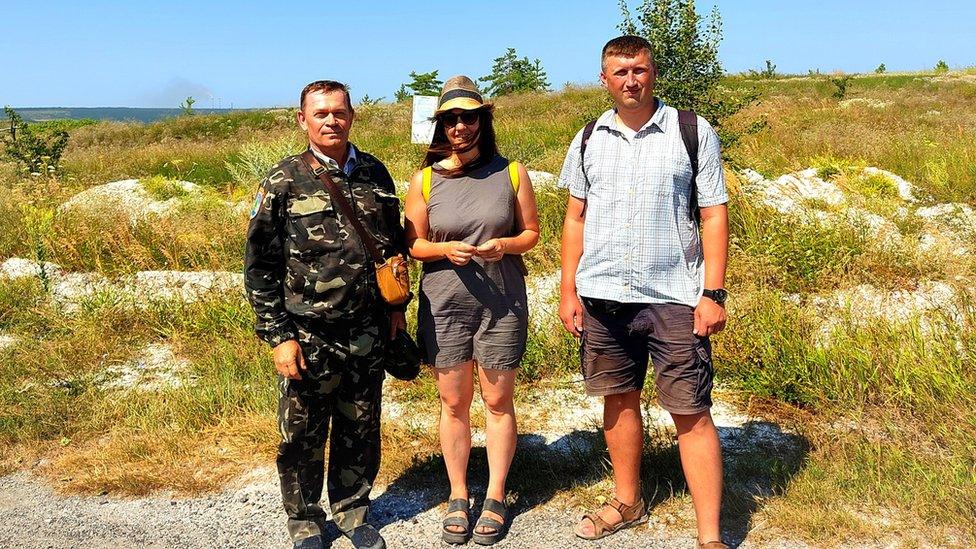
Dr Victoria Donovan (centre) has visited the Donbas region on several occasions
'Incredibly angry'
"People in government-controlled Donbas are generally very politically active, Ukrainian sort of patriots - people who are very peace loving and hope this war will be over very soon," said Dr Victoria Donovan, senior lecturer in Russian at the University of St Andrews and director of the university's Centre for Russian Soviet Central and East European studies.
"The world's attention is on it right now but it's been ongoing for eight years and for the community living there, this has been a reality for such a long time," she said.
"Those communities were really hoping that the worst of it might be over and now they're faced with this new horror."
She said watching the images coming out of Ukraine was "absolutely tragic".
"It makes you incredibly angry," she said.
"I'm so angry for all of my Ukrainian friends and my Ukrainian students at St Andrews. It's so undeserved."
- Published14 March 2022
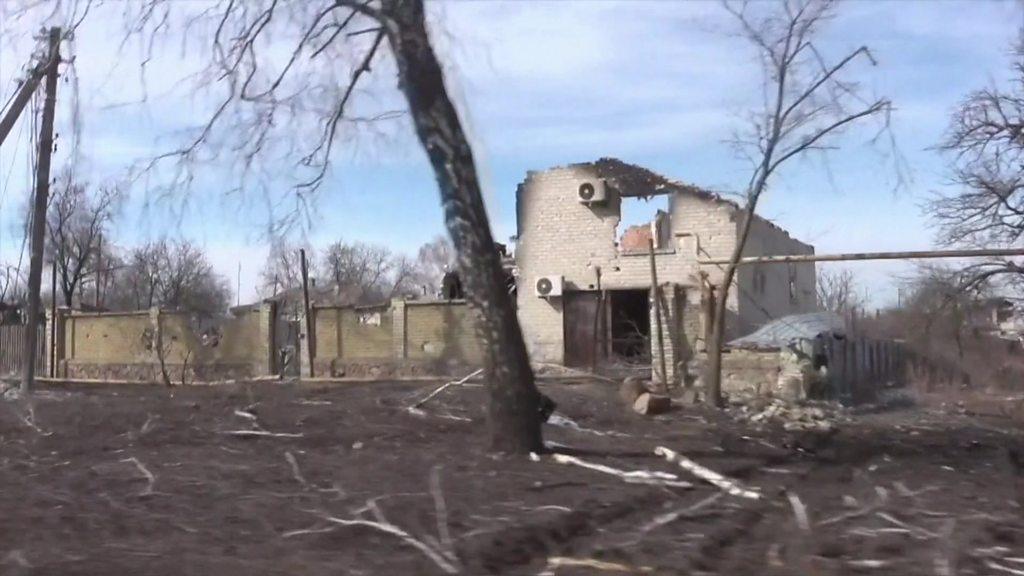
- Published21 February 2022
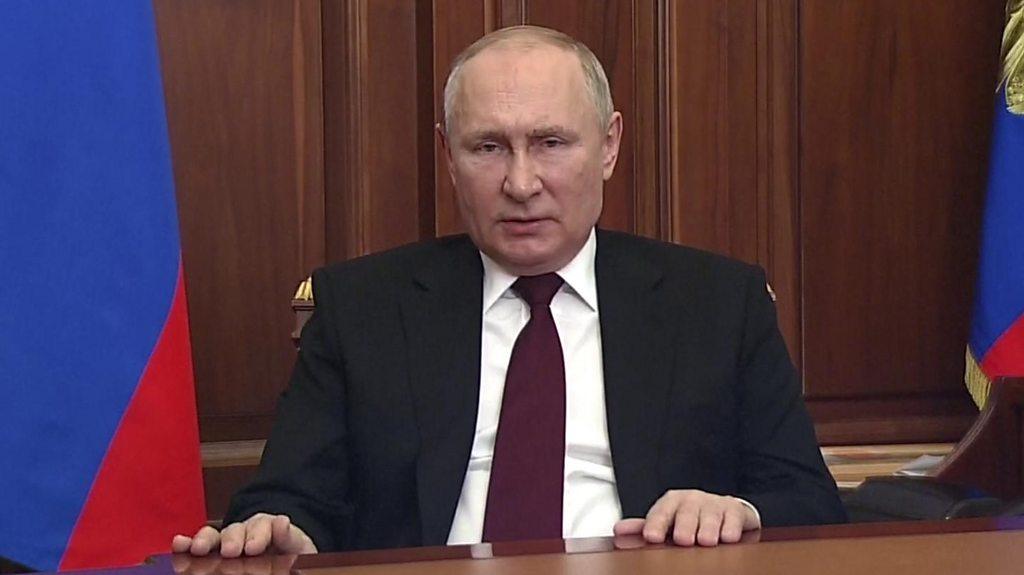
- Published30 June 2017
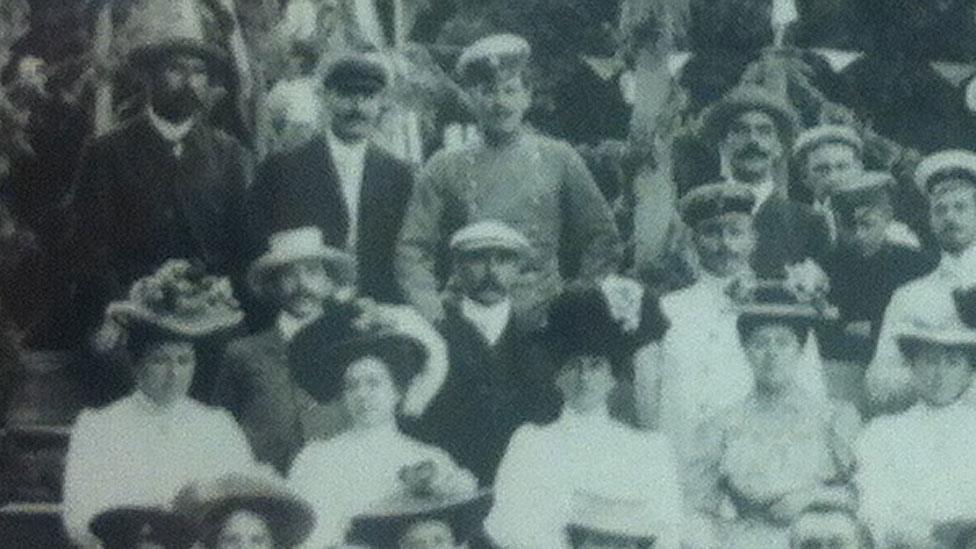
- Published22 January 2022
